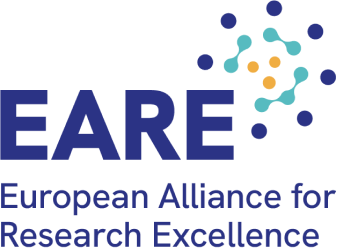
Done right, Europe’s Data Strategy can unlock tremendous new opportunities for European innovators
Members of the European Alliance for Research Excellence (EARE) support the principles of voluntary, trustworthy and responsible data sharing and enhanced access to public sector data for European innovators that underpin the EU’s Data Governance Act. However, the current text includes ambiguity that may create legal uncertainty and undermine trust in the proposed data sharing frameworks.
We believe that the principles underlying the Data Governance Act will encourage trustworthy and responsible data sharing and the re-use of public sector data in Europe, which offers vast potential for economic growth and can help generate insights to address some of society’s biggest challenges, from healthcare to the environment. To foster trust in data sharing frameworks, greater clarity is needed on the scope of data sharing intermediaries and the role they play in the emerging data sharing ecosystem, together with encouraging the free flow of non-personal data across borders.
Breaking down barriers to data sharing in Europe.
A main misconception currently limiting data sharing in Europe is the perception that data in itself is valuable. EARE members believe that what is most valuable are the insights that come out of that data. In our submission to the European Commission’s roadmap, we called for data to be “as open as possible, as closed as necessary”, making the case for opening up access to data to foster better outcomes. We strongly believe that the best way to unlock the value of data may be to share it with others.
Similarly, data sharing does not mean opening up all data to everyone, without respecting existing rules. The benefits of data sharing and a more open, collaborative approach to data can arise across a wide set of scenarios, with different numbers and types of players involved. In fact, successful collaboration models already exist across many of these different scenarios that allow organizations to share more data while maintaining contractual control over that data.
Using the Data Governance Act as a stepping stone to create the right framework and incentives to allow actors of the data economy to leverage the power of data and benefit society.
The Data Governance Act is only the first of a set of regulations foreseen by Europe’s Data Strategy to ensure the EU can become a leading role model for a society empowered by data. For this ambition to succeed, we believe that a few pre-requisites need to be considered by EU policy-makers:
Policy-makers need to create an environment of trust through a series of building blocks contained in the Data Governance Act. The levels of trust from data owners depend a lot on the type of data that is being shared and used, and on the context in and purpose for which that data is used. This can be solved through transparency and proactivity from data users, or through the development of privacy-preserving technologies, such as differential privacy and confidential computing, the development of which could benefit from EU funding under the Digital Europe programme.
Policy-makers need to ensure there isfairness in data sharing, in order to prevent market failures, to encourage the development of new or smaller actors and to accelerate data pooling for responsible innovation. Fostering the development and adoption of open data policies would be paramount in achieving this objective.
Policy-makers should focus onadopting the right incentives to data sharing rather than creating mandatory schemes, which may have the opposite effect and disincentivise data sharing. Voluntary data sharing can be encouraged through the use of existing data sharing schemes and tools, such as data sharing agreements and a variety of cloud services. Such data schemes and greater access to existing and emerging tools can also ensure that smaller players like SMEs or startups are not left out. In fact, to encourage data sharing, stakeholders should be able to see what’s in it for them if they open their data under certain terms and conditions.
The Data Governance Act is a first step towards the implementation of a European single market for data.
Creating clear rules for access and re-use of data between all actors of the data economy, to encourage innovation, will incentivise data sharing in Europe. While some aspects remain to be clarified, the Data Governance Act starts to provide an answer to the challenges identified above by:
- Opening up more public sector data: the provisions outlined in Chapter II of the draft regulation are a good step forward to foster increased collaboration and reuse of public sector data;
- Encouraging trust, and standardisation while reducing the transaction costs of data sharing, through the establishment of standards that promote usability and accessibility of data. By promoting the adoption of internationally recognized technical and security standards to format, structure and share data, the EU can realize its vision for a Single Market for Data. Further, to help alleviate the burden on participants in the data sharing eco-system, the Commission should support the creation and adoption of model data sharing agreements. Model agreements can help reduce the “frictions” that today deter organizations from sharing data.
- Encourage alternative models in the data sharing ecosystem: to encourage enhanced access to data, individuals and organizations should have options to choose a model of data sharing best suited to their scenario. We support the emergence of innovative models, such as data sharing intermediaries as envisioned in the DGA, that sit alongside existing models of voluntary data sharing, including data sharing governed by private contract. The goals of Chapter III, including that access to data sharing services are fair, transparent and non-discriminatory, and prevent fraudulent practices, if properly implemented, will help to encourage trust in alternative models of data sharing, and may unlock the ability for more value to be realized from data when shared across sectors.
- Developing frameworks that encourage the cross-border flow of data, while protecting intellectual property rights: we support balanced intellectual property laws that protect commercially sensitive information, while providing robust exceptions for the access and use of data for analysis and innovation, without restricting the cross-border flow of data. The possibility to collaborate on data projects across borders, and leverage diverse perspectives and resources is one of the key benefits that data sharing offers, and should only be enhanced and not restricted.
Making data more open and accessible while respecting human rights, security and privacy will ensure Europe’s future prosperity. While there are points of clarification in the current text, we stand ready to work with European policy-makers to ensure this regulation works for researchers and innovators in the data economy.
You can find our full submission to the Commission’s roadmap on Data sharing in the EU – common European data spaces (new rules) here.
You can find our full submission to the Commission’s draft Data Governance Act here.


